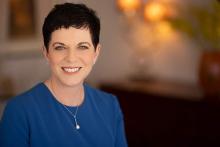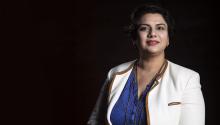Going global: How next gens can capitalise on an international MBA

Michel Haddad, a 34-year-old next gen from Lebanese family business Technica, is one of a growing number of executive MBA (EMBA) students prepared to travel huge distances to study.
Every two months the sales manager temporarily steps away from his role at the family business, travels 2,000 miles and spends two weeks studying at the EDHEC Business School in Lille, France. He hopes the Global EMBA course, which is specifically designed for family businesses, will prepare him for future leadership.
EMBA programmes, which are designed to help professionals earn an MBA qualification while working full-time, are increasingly attractive to the next generation, as they are often tailored towards the needs of the business and can be built around busy schedules.
Haddad and his fellow students are now half way through EDHEC's current 15-month modular programme. In July they had the opportunity to gain practical experience during a series of placements in Singapore, which EDHEC hopes will provide insight into the problems faced by global family businesses.
CampdenFB spoke to Haddad about his experience on the EMBA and asked what he plans to take back to the family business.
Can you tell me about your role at the family business?
Technica is a family-owned business based in Lebanon. It was founded in 1982 by my father, Tony Haddad, who had a dream of manufacturing conveyor systems and automated solutions in Lebanon. The business eventually went global. My brother, sister and I are part of the second generation and I am the sales manager of multinational organisations. I regularly find myself working with companies such as P&G, Unilever, Henkel, Pepsi Cola and Coca Cola.
What have you learnt from the course that will prove useful when returning to your family business?
We are more than halfway through the programme and have covered a wide range of topics. Many of the subjects are classically important, such as finance and economics, but the areas I have found most useful are related to my goal, which is to improve corporate governance and implement a succession plan at the family business.
Prior to signing up to the course, had you found it difficult to find a programme that adequately targets individuals from a family business?
It was very difficult finding a course that met my needs. I was actually planning to do a standard MBA in order to get a better perspective on business management, with the end goal of preparing myself for a leadership. I discovered this programme through the Campden magazines. What made it stand out is the fact that the topics on the course are related to core family business issues, such as succession planning and corporate governance, which we have identified as key areas for improvement.
What impact has the international aspect of the course had on your experience?
The last module in Singapore had a big impact on me. It was my first time visiting Asia and I was given the chance to learn about local families and how they have implemented their succession plans. We were introduced to a successful a Singaporean family business who had successfully transitioned into the second generation.
Can you tell me about your classmates and the impact they have had on your studies?
My fellow students have a great deal of work experience and work in industries ranging from bakery to programming. There is even a fourth generation wine business and some family office executives. I've found it very beneficial sharing my experience and issues with my classmates and when taking on board their advice. I noticed a great chemistry in the class, even from day one.
The course concludes with a leadership development program at Sandhurst Military Academy in the UK. How do you think you will fare?
We had a brief about the Sandhurst event when we started the course and it will be my first time attending such an event. It's meant to be a leadership programme from a military point of view. I'm not sure what to expect but I am looking forward to it. I'm sure it will be cold.
As a member of the next generation of family leaders, what innovations or unique perspectives do you think your generation can contribute?
In my case there is a 35-year gap between the founding generation and the second generation, which means there is a great deal for us to contribute. Mainly, I think the huge disparity in the way our generation finds solutions could be useful to the business. I think my siblings and I can contribute by having the same goals, which at the moment is to establish a succession plan that will hopefully continue into the 10th generation. That's not to say that the new way always beats the old. We still rely on our father's experience a great deal.
Is there anything else about the course that you think is worth mentioning?
Doing an MBA programme was never a flight of fancy or an ambition to change jobs or to have a higher salary. It was to prepare myself for a leadership position at the business that my father has created. I think that MBA programmes are essential for the next generation and they should be the first thought for those looking to carry on their family's legacy.






